We read, we learn, we grow up equal
“[it is] natural selection…only those with a calling – others will naturally get lost along the way because they come from an environment which lures them into dropping out.…’’
(School principal, from the documentary film ’’Our School’’[1])
I’ve been a French teacher for almost 15 years, and during this time I’ve worked with students of one of the best high schools in Bucharest, then with students from French Institutes in different countries, then with teenagers from a charter[2] school in Boston, and recently I’ve taught the youngsters from 2 American universities.
I’ve interacted with so many different kinds of students, from the ones that lighten up when coming to class, to the ones that can hardly stay put or those with a distant look in their eyes –and when I think of the latter, I will never forget this 9-year-old who, after breaking a red-inked pen and spilled it all over his hands, started rolling on the ground and screaming Madame, madame, y a du sang, y a du sang partout, je vais mourir[3]; or the 18-year-old girl who discovered for the first time, in the 2015’s USA, how it was to have running water within a university campus. There was also this 16-year-old boy who had confessed to me about a recent suicide attempt.
Of course, it’s easy to teach those who seem to have a constat calling. The real struggle is to get to those who don’t seem to have it, and oftentimes to discover that they are at least just as talented.
We can always say that many other Romanian teachers understood that the school was for every child, no matter where one comes from. And there are probably more and more kindergarten and primary school teachers that receive hugs when they enter the classroom.
However, the issue is that the entire educational system seems to function mostly for those who have a calling – or for those whose parents invest in private lessons from an earlier and earlier age. However, we can’t measure the quality of education by the performance of the best - every country has its excellent students - , but through a way that helps all the children to reach their maximum potential.[4])
Many children get to the 4th grade without actually being able to read[5]. Their reading skills are the most difficult to improve, mainly because the best time for a child to develop their language skills and speech is during their early development period[6]. Therefore, all the successful interventions that aim to enhance reading abilities are implemented by the time the first difficulties appear.[7]
There is one such programme, Reading Recovery, extensively implemented in the USA and initially developed by Marie Clay, within which reading is an activity meant to find solutions. The programme consists of an intervention on short term dedicated to children aged 5 to 6 who have reading and writing predicaments during the preparatory class. In general terms, it’s about individual lessons, clearly structured, that take 30 minutes and last between 12 and 20 weeks. Specific to the programme is that every lesson is not only an opportunity to decipher new books, but also to carry out creative activities and to learn to wield the letters.
Reading Recovery works mainly because the teachers, having the same performance standards for all the students, are willing to help, at each child’s particular level, encouraging relevant learning strategies and adapting their teaching methods. According to the assessments, 75% of the children which don’t seem to have a calling for school succeed in keeping a constant level throughout the whole primary school.
Obviously, reading competences strongly influence the future financial success. But beyond the economic benefits, lecture is important for vulnerable children in their day to day emotional and social life.
Although an ancient concept – the oldest motto of a library dating back to Ramses II’s times and identifying it as a house of healing for the soul[8], bibliotherapy entered the educational system only by 2000. Embedded in the cognitive behavioral therapy, creative bibliotherapy uses fiction, poetry and films as prevention and treatment methods for emotional and behavioral problems.
The books used during the classes or individually, as recommended by a teacher, approach a series of problems that children and teenagers confront with every day and give them ideas of solutions for their problems. Countless books, that unfortunately haven’t been translated in Romanian language yet, can be helpful in various circumstances.
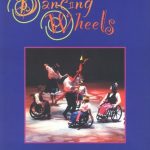
Dancing Wheels (Patricia McMahon, 2000) tells the story of the dance
group with the same name, established by Mary Verdi-Fletcher in order
to integrate young dancers in wheelchairs in performance shows;
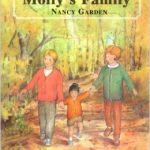
in Molly’s Family(Nancy Garden, Sharon Wooding, 2004) a little girl
learns how to answer when being told that her family isn’t a normal one,
because she has two mothers.
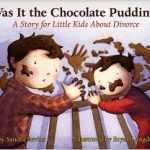
Was It the Chocolate Pudding?(Sandra Levins, Bryan Langdo, 2005) is
about a boy who thinks he’s guilty for his parents’ divorce.
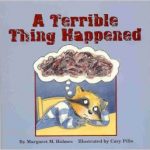
A Terrible Thing Happened(Margaret Holmes, Sasha Mudloff, 2000) is
a book about the origins and the understanding of some strong negative
feeling; lastly,
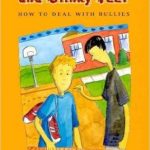
Blue Cheese Breath and Stinky Feet(Catherine DePino, 2004) tells the
story of a boy who learns all manner of strategies to fight against bullying
at school.
If it isn’t only for the clear positive effects over the scholastic performance, the evaluations of different programmes highlight many other important benefits. The youngsters learn how to communicate more authentically and efficiently, how to feel freer about manifesting their own personality and lower their anxiety, harmful behaviors and unhealthy habits.[9]
These two examples of programmes conceived for kids that aren’t as prepared for school as they should be demonstrate that as soon as a pedagogy centered on the student offers itself specific tools for implementation, a lot of children can visibly improve their results at school and their emotional and social interactions.
Only giving everybody the books and the advice to read isn’t enough: we need a pro-active and interactive pedagogy. A child’s capacity of interpretation and understanding grows not only when they decipher a book, but when they grasp it through games and imagination.
by Gabriela Nenciu
Gabriela Nenciu holds a degree in Foreign Languages Pedagogy and in Cultural Projects Design (Sorbonne University Paris). Currently she is teaching at Brandeis University. She has taught at Dartmouth College and in the French Institute network in Romania, Marocco, Hong-Kong, and Indonesia.
Read also We Need Literature That Promotes Diversity and Children's Rights
[1] Mona Nicoară, Miruna Coca-Cozma – Our School, 2011.
[2] Charter Schools are an alternative form of schooling that exists in the USA and Canada. They are financed by the state, but they function independently of the public educational system, being given not only administrative autonomy, but also pedagogical.
[3] Miss, Miss, there’s blood, there’s blood everywhere, I’m going to die.
[4] The Pisa Report, 2012. According to this report, the best educational systems in the present are those which offer evenhanded educational resources for the favoured and the unfavoured students; they have more freedom when it comes to managing the curriculum; they employ teachers who believe that every student can perform at a high level; they involve all the system’s members, including the pupils, when evaluating the learning activities.
[5] 40% in Romania, according to the Pisa Report, 2012.
[6] Charles Nelson, Neural Plasticity and Human Development: The Role of Early Experience în Sculpting Memory Systems. Developmental Science, 2000.
[7] Roland Fryer, The Production of Human Capital in Developed Countries: Evidence from 196 Randomized Field Experiments, 2016.
[8] Cora E. Lutz, The Oldest Library Motto în The Library Quarterly, 1978.
[9] Michael Rozalski, Angela Stewart, and Jason Miller, Bibliotherapy: Helping Children Cope with Life’s Challenges, Kappa Delta Pi Record, 2010.



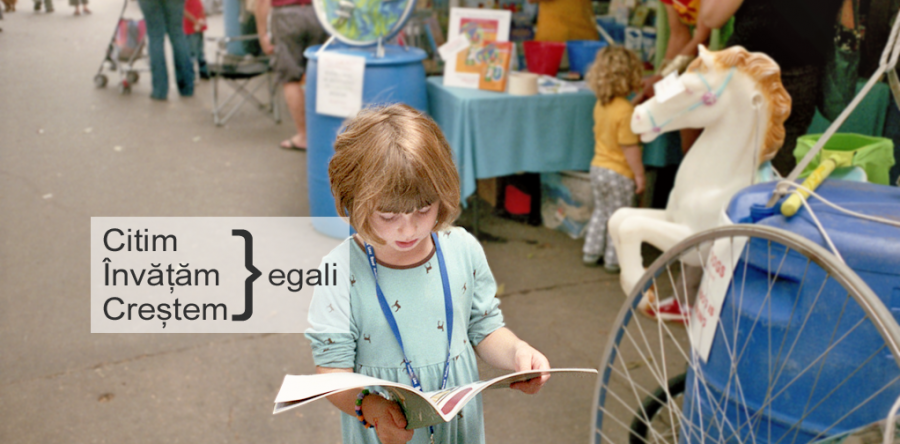





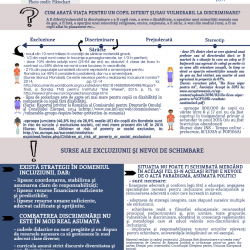
0 Responses